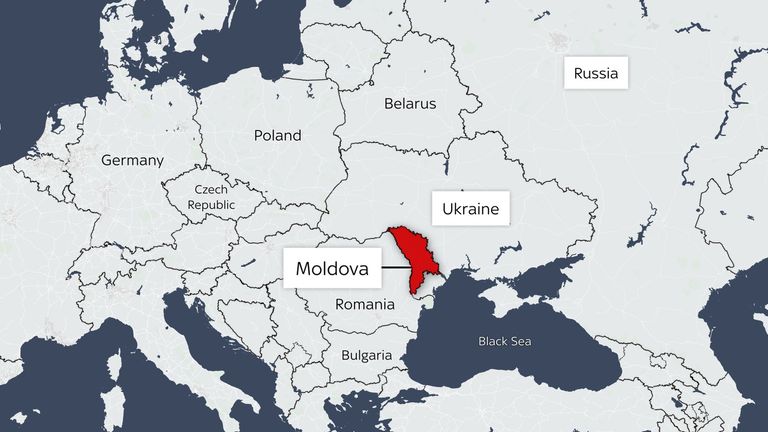Polls had suggested the “yes” vote would win easily in Moldova’s referendum – instead, what ensued was a nail-biting count.
People had been asked to vote “yes” or “no” on whether the aim to join the EU should be enshrined in the constitution.
Within an hour of the polls closing, the “no” vote was unexpectedly pulling ahead.
At the pro-European president’s watch party, advisers expressed caution, telling journalists not to jump ahead.
But the mood became increasingly tense.
A statement by President Maia Sandu initially expected around 10pm was delayed until just after midnight.
There she solemnly addressed the nation, warning citizens that democracy was under attack by foreign forces and criminal groups.
While she didn’t name the culprits, Russia had been accused of trying to meddle in the vote ahead of polls opening.
Police claim they faced an unprecedented campaign of interference including bomb hoaxes, vandalism, misinformation and attempts to buy the vote.
One investigation found more than 130,000 people had been bribed to vote “no” on Sunday.
In the days ahead of the referendum, they also uncovered a programme in which hundreds of Moldovan citizens were brought to Russia to undergo training to stage riots and civil unrest.
“In September alone, we are talking about an amount of over $15m that was transferred for the purpose of corrupting or disrupting the democratic electoral process in Moldova with the emphasis being on the referendum,” Moldova’s police chief, Viorel Cernauteanu, told Sky News.
Moscow has denied any involvement and claims the allegations are fuelled by “Russiaphobia”.
Moldova and its Western allies have accused Russia of launching a hybrid war on the country which has intensified as it has continued to lean towards Europe.
On Monday, the president had perked up, claiming victory after provisional results suggested the yes votes narrowly outnumber the nos.
It was painfully close with large pockets of opposition in the north and south of the country.
It was the votes from Moldovans living abroad which helped save the pro-European campaign.
But with such a tight race, it’s still not clear if the losing side will accept the outcome or if unrest will follow.
One thing is certain – this referendum may be over, but the danger of further attempts of interference isn’t.


